- Home
- Bryce Courtenay
Jack of Diamonds
Jack of Diamonds Read online
Contents
About the Author
Dedication
PART ONE
Chapter One
Chapter Two
Chapter Three
Chapter Four
Chapter Five
Chapter Six
Chapter Seven
PART TWO
Chapter Eight
Chapter Nine
Chapter Ten
Chapter Eleven
Chapter Twelve
PART THREE
Chapter Thirteen
Chapter Fourteen
Chapter Fifteen
Chapter Sixteen
Chapter Seventeen
Chapter Eighteen
Chapter Nineteen
Chapter Twenty
PART FOUR
Chapter Twenty-One
Chapter Twenty-Two
Chapter Twenty-Three
Chapter Twenty-Four
Epilogue
Acknowledgements
About the Author
Bryce Courtenay is the bestselling author of The Power of One, Tandia, April Fool’s Day, The Potato Factory, Tommo & Hawk, Solomon’s Song, Jessica, A Recipe for Dreaming, The Family Frying Pan, The Night Country, Smoky Joe’s Cafe, Four Fires, Matthew Flinders’ Cat, Brother Fish, Whitethorn, Sylvia, The Persimmon Tree, Fishing for Stars, The Story of Danny Dunn, Fortune Cookie and Jack of Diamonds.
The Power of One is also available in an edition for younger readers, and Jessica has been made into an award-winning television miniseries.
Bryce Courtenay lives in Canberra.
Visit Bryce on Facebook: facebook.com/BryceCourtenay
Further information about the author can be found at brycecourtenay.com
For
Dr Koroush S. Haghighi,
with my gratitude and thanks
PART ONE
CHAPTER ONE
HARRY SPAYD WAS A drunk. He was also my father, but the only thing he contributed to my childhood was a sense of unremitting terror. As fathers go, Harry was by no means unique. In the part of Toronto where I was raised in the 1930s, normal, happy, socially well-adjusted children were non-existent, which meant I was lucky. When every kid is in much the same boat, there is no such thing as a dysfunctional family or even poverty, just life.
We were different in one respect: my mom, Gertrude, had the rare good fortune to have a regular job as an office cleaner across town. It was a small miracle, really. She would get home just after ten at night, always walking the last streetcar stop to save on her fare. She had bad circulation in her feet and in the winter suffered from chilblains.
Treating her chilblains was my first contribution to the welfare of our family, and the nightly ritual gave me a great sense of importance and pride – I was the man of the house, looking after Mom, just as her small salary kept the wolf from the door.
The treatment required careful planning and precise attention to detail. I’d place a big tin pail on the kitchen floor with a chair beside it and another chair beside the stove. Then, anticipating her return from work, I’d fire up the stove with coke and, as soon as it was burning properly, I’d fill the big black cast-iron kettle and lug it over to the chair beside the stove. There was just enough space on either side of the seat for my feet. I’d hop up and heave the kettle onto the stove to boil. I don’t suppose the kettle was that big, but to a six-year-old boy it seemed a veritable giant. My mother had inherited it from my grandfather, who had got it from his father, who was a real Iroquois Red Indian. I always imagined it must have been used on an open campfire, it being so black. Such a large heavy kettle filled with boiling water is very dangerous. I’d lift it from the stove using both hands, and place it ever so carefully on the chair between my legs, with the spout pointed to the front. Then I’d jump down, tilt the kettle and pour the boiling water into the pail. Later, when I was eight and had grown a bit, I didn’t need the chair any more.
I’d always leave a little water in the bottom of the kettle to return to the stove the moment I heard Mom coming through the front door. It would only take a minute or so to boil, and I’d have the teapot ready with tealeaves in it.
Next I’d fill a white enamel jug with cold water and place it beside the steaming chilblain pail so we could mix it to the right temperature. Then I’d add coarse salt and a tablespoon of cayenne pepper to the pail. This was almost as risky – if you got even the tiniest bit on your hands and later rubbed your eyes, kapow! You were temporarily blinded. Even after you’d washed your eyes at the tap, they stayed red and burning for ages and ages. But the cayenne wasn’t all. There was one more special ingredient. I’d unbutton my fly and piss into the pail. My mother explained that it was an old but trusted recipe for fixing chilblains that she got from her mother and also her grandmother; cayenne pepper, urine and coarse salt did the trick every time. I have to say that the pissing part sounds pretty disgusting now, but at the time I accepted her instructions and it simply became a part of my nightly routine.
When I heard her key rattle in the front door, I’d put the kettle on and meet her at the door. ‘Hello, Jack,’ she’d say, her lips so blue and trembling from the cold she could hardly get the words out.
I’d help her take off her overcoat, and she’d sit down on the kitchen chair with an exhausted sigh. With my precision timing, the kettle would be boiling and I’d make the pot of tea and leave it to steep to the strength she liked, then I’d remove her battered snow boots and her three pairs of socks. Finally, I’d add the water from the jug to cool the pail sufficiently so she could sink her near-frozen feet into it.
She’d start ouching as her feet thawed, until she grew accustomed to the temperature. I was pretty careful and she never ever got scalded. Chilblains affect your fingers as well as your toes, but she wore these big woollen-lined gloves my dad had for his job in winter (he must have got a second pair somewhere) and never got them on her hands.
It was then time to pour her a mug of tea, hot, strong, black and heavily sugared. The mug, one of two royal mugs we possessed, had a picture of King George V on one side and the royal coat of arms on the other, with the legend ‘God Save the King’ around the base. The second had a picture of Queen Mary and the coat of arms but no legend. Cabbagetown people were almost exclusively of English, Scottish or northern Irish stock. All were obsessively loyal to the Crown and referred to King George as the King of Canada. Mom always preferred the slightly larger King George, as it was about three mouthfuls bigger than the more ladylike Queen Mary and also served to warm her hands more effectively. She always drank two mugs of tea in the time it took for the water to cool in the pail.
It was while she sat and soaked that I performed my next task. She’d undo her bun to allow her hair to tumble almost to her waist. It was thick and black, and I’d brush it and watch the silvered light run across the strands as the brush worked through her hair. ‘Jack, what would I do without you?’ she’d sigh.
‘You could have had a girl and she wouldn’t make you go “ouch”! Girls are better at hair than boys. They’re always braiding and tying and messing around with each other’s hair at school. Hair is definitely a girl thing.’
‘I prefer you, Jack. A girl couldn’t do the chilblain concoction or even lift Grandpa’s kettle.’
I stifled a giggle. Lucky I was standing behind her and she couldn’t see my face. As far as I knew, a girl couldn’t add the final ingredient like a boy could; she’d have to sit on the cold pail and put the ‘you know what’ in first. But it was better to add it last thing when the salt and cayenne pepper were mixing with the boiling water.
While I brushed her hair, I had the kettle going again. Our timing for the entire chilblain procedure had to be perfect so we could take turns us
ing the bathroom before my dad came home. She’d go first, taking the hot water in the kettle with her to rinse her feet and legs carefully in a tin tub, before changing into her nightie and cleaning her teeth (we used salt for teeth cleaning). Then I’d clean my teeth and get into my pyjamas, and we’d padlock ourselves in the bedroom I shared with her.
With a bit of luck we’d see very little of my father. He left home at 5.30 a.m., one of the fortunate few men who had a regular job with the Toronto City Council, where he worked as a garbage collector.
I was six when the 1929 Wall Street Crash brought the industrialised world to a juddering halt and the Roaring Twenties to a whimpering close. The factory horns no longer signalled the start and finish of a working day, and the Great Depression that followed was a huge, crushing, grinding machine that demolished society. But we children didn’t know any different. We grew up with a set of rules for home, school, street and slum that were simply beyond our control. The strong ruled the weak and children adjusted themselves accordingly. But kids find ways to be happy even in truly miserable circumstances. The real trick was not to be seen to be a loner. Inclusion in any capacity – tyrant or slave, bully or victim – was the first rule of survival, as was knowing your place in the pecking order of a broken-down social structure.
Virtually everybody in the slum area named Cabbagetown where we lived belonged to the bottom of the working-class heap – factory-floor workers and pick-and-shovel labourers. All were ground down by the remorseless tread of economic depression, thereafter to be swept up like a pile of dirt into a hopeless, helpless heap of useless humanity.
The traditional male breadwinner in the family, despairing of ever gaining regular employment and dependent on a labour line already grown long by first light, too often took his misery and shame to the tavern. Drinking away his day’s pay, he then brought his anger and guilt home, usually to a small ramshackle two-storey rented workers’ cottage, occupied by two or more families crammed into each storey.
Most houses in Cabbagetown were shabby, their broken windows taped up or covered with cardboard. Most were rented, and neither the tenants nor landlords did much to prevent them falling into rack and ruin; you could often smell rotting wood and mould as you passed. Occasionally, you’d come across a house that you knew was owned by a family because it was well maintained, like a good tooth in a mouthful of decay. These few homes usually belonged to people who had government or city council jobs, like policemen, council foremen, clerks or firemen. Most people could never contemplate owning their own home.
Cabbagetown was dirty. The gas plant on Front Street, the silent, dusty factory yards and the railway yards along the Don River added to the grime. In winter, the acrid tang of the coal stoves filled the air, and when the wind blew, the smell from the gasworks would catch at your throat.
There was one good thing about the gasworks and the railway. Kids could sneak down to the railway yards at night with these little carts they’d made and steal coal. There was stuff leftover from making gas that you could burn in the stove and that was stolen too. The unemployed would get a voucher from the government every week for coke for cooking, but it was seldom enough in winter because the stove was what kept people warm. They also gave out a ration of staples and another voucher for milk but, because we were an employed family, we didn’t get them. If you were unemployed, you had to report downtown to the House of Industry to sign the unemployment register before they’d give you your weekly rations. Lining up would take the whole day and only the head of the household could go, so this knocked out one day a week on which a man might get a casual job.
The slum landlord and the bailiff from the sheriff’s department were both public enemies, feared by all. The bailiff would evict a family, then auction all their possessions until he had sufficient money to pay the landlord the outstanding rent. Finding the weekly rent was every wife and mother’s greatest preoccupation. It took precedence even over food and winter heating. While kids went hungry and some were definitely malnourished, no one starved. Food could be obtained from the Yonge Street Mission Soup Kitchen and other local charities. The classrooms were heated and people found ways of not perishing from the winter cold.
The major social problem, aside from a lack of gainful employment, was, as always, alcohol. Once-compliant husbands – essentially happy Saturday-night drunks who had dutifully handed their pay packets to their wives and kept only sufficient for a daily pint with their pals at the tavern after work – now frustrated, helpless and ashamed, became recalcitrant and violent when drunk.
The sound of a drunken man beating the living daylights out of his sobbing wife was not unusual. It didn’t pay to interfere – bashed wives and kids were too common to cause much comment, and the maxim at the time was that you didn’t intervene in the affairs of husbands and wives. Church and community workers learned to ignore the results of domestic violence and nobody thought to call the police. If they had, the multitude of charges for drunken, violent and disorderly behaviour would have brought all the provincial courts in Toronto to a standstill and put half the men in Cabbagetown in the clink. Teachers simply did the best they could with classrooms of largely feckless, soup-kitchen-fed, snotty-nosed children, often enough with a split lip or a black eye above a swollen cheekbone.
If a teacher – new, young and generally female – was silly enough to ask a battered child what happened to his or her face, she would receive the time-honoured reply: ‘I ran into a doorknob, Miss.’ Doorknobs had a dreadful reputation in Cabbagetown. In fact, many boys wore their domestic wounds as a badge of honour.
A beating from my father was usually a vicious backhand, the great knobs of hard knucklebone doing the damage and making a mess of my mother’s face and sometimes my own. My mom, who must have once had a handsome face, with her dark hair and obsidian eyes, had had her nose broken so often that it might well have belonged on the face of a veteran prize fighter. My father’s backhand swipe never extended to a second; if it landed correctly, it had enough power to knock my tiny mom senseless.
As I grew older I’d dream of some day growing big and strong enough to take on the bastard. No warning, just bang, bang, bang! Merely thinking about it would cause me to clench my fists and I could almost smell the blood on my knuckles, his blood, and see him on his knees, whimpering, both hands covering his broken nose, the way I’d so often seen my mom cowering on the kitchen floor.
A battered wife would very seldom leave her brutal husband, even before the Depression. Women’s wages were only two-thirds of men’s, there was no social security for a woman alone with children, and even should she find work, she couldn’t possibly care for her family. In the Depression she had no chance.
The fact that both my mom and dad had jobs was greatly resented by many of the Cabbagetown women, who would snub my mother in public or make snide remarks as she passed by. If we kids understood the pecking order in the playground, this was also true of the wives, who caused most of the problems that weren’t the result of liquor. While we were all in the same boat, there were deeply felt differences. A small family such as ours, with two adult wages coming in and only three mouths to feed, caused great resentment, even bitterness, among the women in our neighbourhood.
Most families had a clutch of four or five children, so when neither parent was able to find regular work, feeding and clothing that many kids was a terrible burden. I didn’t have any brothers or sisters due to ‘complications’. My mom gave birth to me at home, where, like most slum kids, I was delivered by Mrs Spencer, the local midwife. But, shortly after I was born, Mom had to be taken to the general hospital emergency department in Elizabeth Street. ‘It was to do with my plumbing,’ was how she later explained it to me. The doctor at the hospital said she couldn’t have any more children, and that if she did, then she’d most likely die. That’s why I was an only child.
While the perception of our financial circumstances was quite wrong, I suppose the envy and anger some wives dire
cted at us was understandable. Had my dad not poured his entire wages down his throat each day, so that we were forced to rely on my mom’s tiny income, we would have been decidedly better off than most. In truth, my mom shared all the same fears about the landlord and bailiff as everyone else.
Nonetheless, many of the Cabbagetown wives snubbed Gertrude Spayd completely, never addressing her directly or even acknowledging her presence. Some even spat to the side of their feet as she passed. My mom referred to them as the ‘bitch pack’ and pretended she didn’t give a damn. I was too young to fully understand what was going on, but it must have hurt like hell and she must have been terribly lonely. The only women she could talk to were those she met briefly at work.
The leader of the bitch pack was Dolly McClymont, a very large, big-bosomed woman who lived upstairs with her diminutive, skinny husband, Mac, and twin teenage daughters, Clarissa and Melissa. The entire family had blazing red hair, and none of them was supposed to speak to us, under strict orders from the dreaded Dolly, who would sweep by my mother with a disparaging sniff and her nose in the air in her down-at-the-heel white summer shoes. We got to know ‘them upstairs’ from what we heard through our ceiling. They, of course, would have learned about us by what passed up through their floorboards.
In 1930, the McClymont twins were thirteen, nearly twice my age, but when they’d pass me in the front passage one of them would bump me aside with her hip or shoulder. ‘Oh, didn’t see you,’ she’d say with mock surprise. Then I’d hear them giggling as they went off down the front steps and into the street. When it was very cold, their pale Anglo-Saxon skin seemed to take on a bluish tinge. My mom would sometimes refer to Melissa and Clarissa as ‘them red-and-blue twins’. In summer they would turn red as a ripe tomato, burn, peel and blister.
My mom’s colouring was just the opposite of the twins’; she was, in Cabbagetown terms, tainted by a ‘touch of the tarbrush’. It was probably her black hair. Not only did she have Iroquois Indian blood but also French Canadian, and in the summer she’d develop a nice, dark, even tan. I was the same. No doubt her olive skin and dark hair were yet another reason why she was ostracised by the Dolly McClymonts of this world.

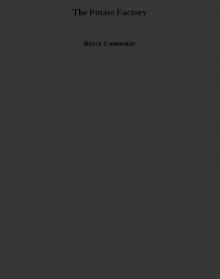 The Potato Factory
The Potato Factory The Power of One
The Power of One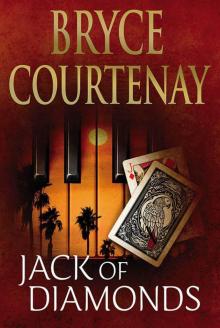 Jack of Diamonds
Jack of Diamonds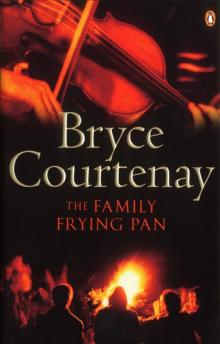 The Family Frying Pan
The Family Frying Pan April Fool's Day
April Fool's Day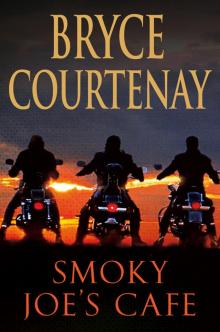 Smoky Joe's Cafe
Smoky Joe's Cafe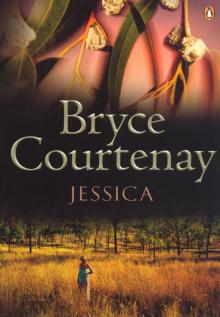 Jessica
Jessica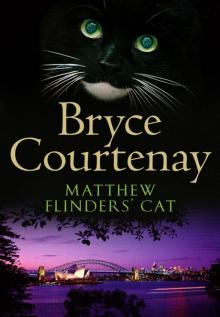 Matthew Flinders' Cat
Matthew Flinders' Cat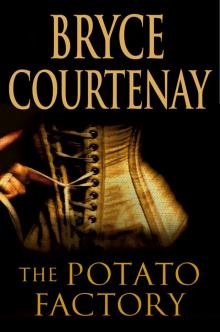 Potato Factory
Potato Factory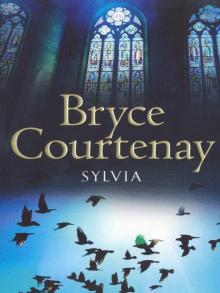 Sylvia
Sylvia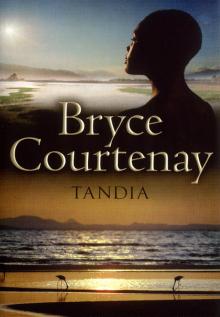 Tandia
Tandia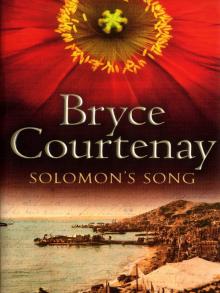 Solomon's Song
Solomon's Song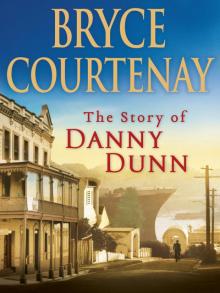 The Story of Danny Dunn
The Story of Danny Dunn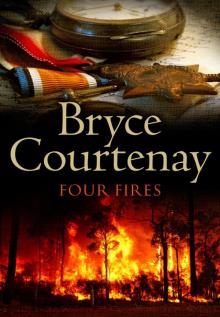 Four Fires
Four Fires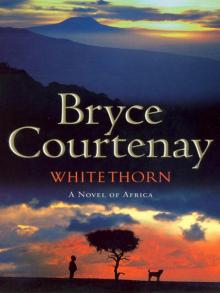 Whitethorn
Whitethorn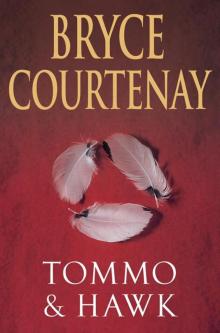 Tommo and Hawk
Tommo and Hawk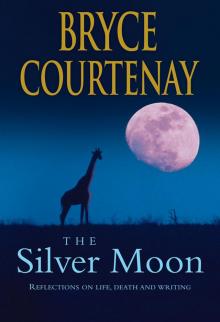 The Silver Moon
The Silver Moon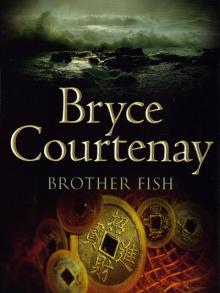 Brother Fish
Brother Fish FORTUNE COOKIE
FORTUNE COOKIE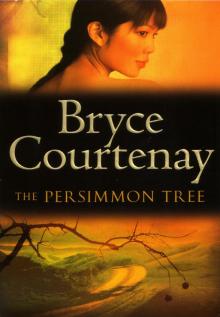 The Persimmon Tree
The Persimmon Tree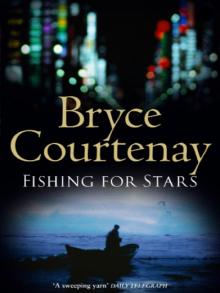 Fishing for Stars
Fishing for Stars